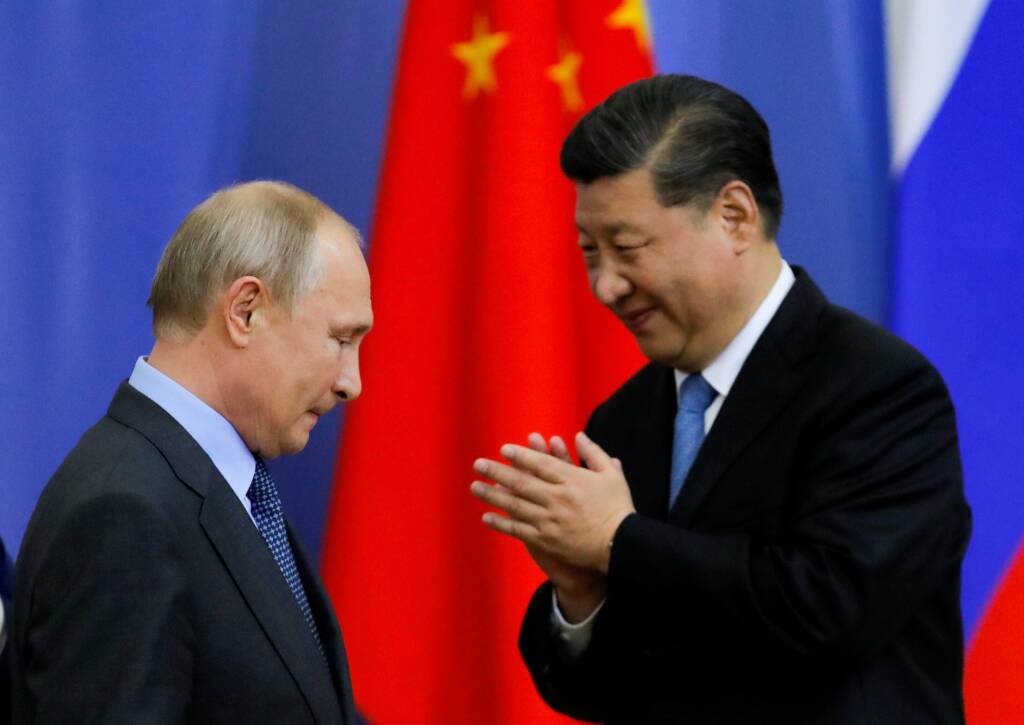China is a rogue state that feels it has a right to interfere and poke its noses in the waters of any country in Southeast Asia. Take the Tuna block in the Natuna Sea offshore Indonesia for instance. A Chinese ship has been meddling with Harbour Energy’s ongoing drilling campaign in this region.
What you ought to know is that the appraisal drilling in the Tuna block in the Natuna Sea is being funded by Russia’s State-backed Zarubezhneft. So, effectively a Chinese ship is hampering Moscow’s energy interests in the South China Sea Region. For a country like Russia largely dependent on the oil and gas sector exports, Chinese interference in drilling operations does amount to a major provocation.
The Russian State-backed company acquired a 50 per cent stake in the Tuna block in May this year, which is currently being appraised and is presently operated by Premier Oil, a Harbour Company. China poked its noses and interfered with the drilling operations shortly after they started. Chinese Coast Guard vessel Haijing 5202 was reportedly spotted in the vicinity of Harbour Energy’s drilling campaign at the Tuna production-sharing contract (PSC) in the Natuna Sea.
In its report, Westwood Global Energy said, “The Haijing 5202 was reportedly about three miles from the drilling location. Indonesian authorities responded by deploying a navy corvette KRI John Lie (385) to the provocation”.
But Russia and Indonesia have refused to get intimidated by Chinese interference. As per Energy Voice, industrial sources said that the drilling operations remain on schedule and are going ahead as per plan. So far, there have been no disruptions to upstream operations in the Tuna PSC.
Backed by a powerful Russia, Indonesia is now pushing back against Chinese belligerence and expansionism.
Energy Voice quoted Ian Storey, a senior fellow and Asian security expert, at the ISEAS Yusof Ishak Institute in Singapore, as saying,
“Over the past several years, Indonesia has pushed back against Chinese illegal fishing in its exclusive economic zone (EEZ) by publicly rejecting Beijing’s claims within the nine-dash line and beefing up its military presence around the Natuna Islands. If the Chinese coast guard starts interfering with drilling operations in the Tuna Block, Jakarta has a range of options at its disposal, from issuing diplomatic protests to deploying its own maritime law enforcement vessels and warships to protect its economic interests. I think we are likely to see a tougher response from Indonesia than Malaysia in its maritime disputes with China.”
Drilling operations in the Tuna PSC have been hindered by Beijing as the area of discovery falls within China’s ‘nine-dash line’, wherein Beijing claims almost the entire South China Sea Region. China’s claims are not recognised by the Association of Southeast Asian Nations (ASEAN) nor do they hold any sanctity under the United Nations Convention on the Law of the Sea. But then, it is China that we are talking about and Beijing keeps pressing its claims without any basis.
China is accustomed to harassing other parties in the South China Sea. It interferes with oil and gas exploration activity by Malaysia and Vietnam too. However, Russian interests have come to get affected profoundly over the recent past.
As per Storey the latest incident of meddling by a Chinese ship in Tuna block in the Natuna Sea is a signal that “despite deepening ties between Russia and China, Moscow’s energy interests in the South China Sea are increasingly being threatened by China as it seeks to assert its jurisdictional claims within its nine-dash line.”
Storey is right. Even last year, China mounted pressure on Russia’s Rosneft to cancel drilling operations in Block 06-01 offshore Vietnam. In fact, the Chinese Coast Guard had earlier harassed Rosneft’s operations off Vietnam.
However, Storey explained, “as Rosneft is Russia’s largest single trade partner with China, and increasingly dependent on the Chinese market, due to Western economic sanctions, it cannot afford to offend Beijing”. In May 2021, therefore, Rosneft agreed to sell its shares in Block 06-01 and 05.3/11 offshore Vietnam to Zarubezhneft.
Now, Russia’s State-backed Zarubezhneft is hitting back at China. It is looking to create a new ‘gas cluster’ in Southeast Asia after asset deals. Zarubezhneft wants to develop a cluster of gas fields offshore Vietnam near the Indonesian border. Its plans, of course, include the Tuna Block in Indonesian waters, together as a cluster hub.
China would be fuming at Russia’s an exploration and drilling blitz in the South China Sea. Moscow is literally emboldening China’s enemies in Southeast Asia and notably, Russia has avoided involving any Chinese energy companies in its drilling ventures in the South China Sea Region.
To put it precisely, Chinese President Xi Jinping tried to strong-arm Russia. However, it was a big mistake on his part to take on someone like Russian President Vladimir Putin. The Russian President has accepted the challenge thrown at him by Xi Jinping. Now, Putin is hitting back at China by expanding Russia’s presence in the ASEAN region with promises of COVID-19 vaccines and efforts to strengthen weak trade ties.
In fact, Russia has emerged as the biggest arms suppliers to Southeast Asia, a move that is definitely targeted against China. Russia is eating into China’s share in the ASEAN region and all that Xi can do is to watch on helplessly
